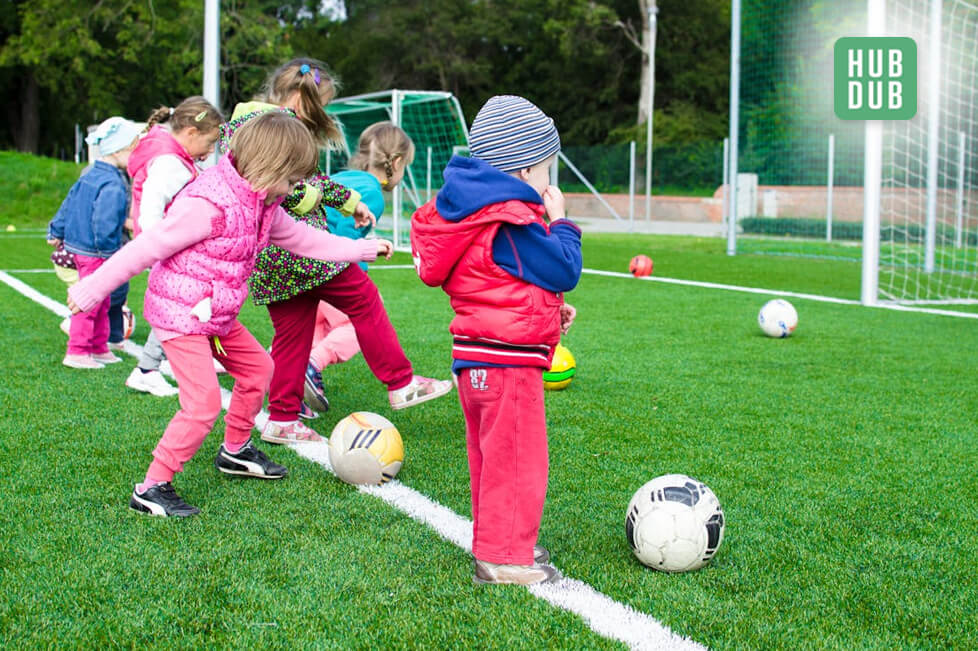
How to Raise Confident Kids
As parents, we all want our children to become confident individuals who can tackle any challenge they face. But how to raise confident kids? Let's discuss it in this article.
Table of Contents:
- Why Is Confidence Important for Children?
- Tips to Raise Confident Kids
- Signs of Low Self-Confidence in Children
- FAQs
- The Final Word
Why Is Confidence Important for Children?
Confidence plays a crucial role in a child's overall development. A confident child is more likely to take risks, explore new opportunities, and believe in their abilities to overcome obstacles than a non-confident child.
Confidence directly affects a child's academic performance. When a child is confident in their abilities, they are more likely to actively participate in class, ask questions, and engage in discussions. This active involvement helps them better understand the subject and score better grades.
Confidence also plays a significant role in a child's social skills. Confident children are more likely to initiate conversations, make friends, and express themselves effectively. These social skills are essential to build healthy relationships.
Tips to Raise Confident Kids
1. Build a Positive and Supportive Home Environment
A positive and supportive environment goes a long way in increasing your child's confidence. Start by providing them with unconditional love and acceptance. Let them know you love and value them for who they are, regardless of their achievements or shortcomings.
Create a home environment where your child can express themselves without fearing criticism. When you hear and understand your child, they will develop a sense of self-worth and confidence in their thoughts and feelings.
2. Celebrate Your Child's Achievements
Recognizing and celebrating your child's achievements, no matter how small, can boost their confidence. Acknowledge them for the effort and determination they put into their accomplishment.
Never compare your child to others. Each child is unique, and their journey of growth and development is different.
3. Set Realistic Goals For Your Child and Celebrate Their Progress
Setting realistic goals is another effective way to cultivate confidence in your child. Help them set achievable goals that are challenging but not overwhelming. Break down larger goals into smaller, manageable tasks so your child can experience a sense of accomplishment along the way.
Encourage your child to track their progress and celebrate each milestone they achieve. It helps them to recognize their growth and makes them more confident. Remember, celebrating progress is a part of learning.
4. Teach Them Resilience
Teach your child that setbacks and failures are a natural part of life and an opportunity for growth. Help them understand that mistakes are learning experiences and not a reflection of their worth or abilities.
If your child goes through some difficulties, encourage them to face them and find solutions to overcome them independently. Guide them through the process, ask open-ended questions, and support them in finding solutions.
5. Encourage Them to Participate in Extracurricular Activities
Extracurricular activities such as sports and arts can help your child develop new skills. The more they learn, the more confident they become as they grow up. These activities also offer opportunities for your child to interact with peers, develop teamwork skills, and build social connections.
If your child is interested in something, support them by providing the necessary resources to pursue their passion.
Pro tip: Excess screen time is a common issue among today's kids. We at HubDub understand that and have developed an app to reduce kids' screen time in an innovative way. How?
The parent sets a goal for their kids. The goal can be related to sports, STEM, reading, social pursuit, art, or general household chores.
We award points for every minute your kids spend doing those activities. When they hit the target score, they get a reward that you have set. This reward-based system will motivate your child to engage in activities that benefit them.
Use these links to install HubDub from Google Play or the App Store.
Signs of Low Self-Confidence in Children
Here are the signs of low self-confidence in children:
- Avoiding challenging tasks
- Negative self-talk
- Social withdrawal (avoiding social interactions or isolating themselves from their peers)
- Lack of initiative
- Unable to decide independently
- Trying to be perfect
If your child shows any of these signs, you should intervene and help them overcome it. Remember that occasional self-doubt or insecurity is normal for children.
FAQs
How can parents help children deal with peer pressure and criticism?
Open communication is key. Parents should teach children to express their opinions, make independent choices, and seek support when facing peer pressure or criticism.
Can overprotective parents hinder kids from becoming confident?
Yes. When you're overprotective, you prevent your child from learning new things. If your child goes through a difficult situation, support them, but don't solve the problem for them.
At what age should parents start working on building confidence in their child?
It's never too early to start. Start developing self-confidence in your child right from the age of 2.
The Final Word
Confidence is one of the greatest gifts you can give to your children. By understanding the importance of confidence, implementing strategies for them, and recognizing the signs of low self-confidence, you're setting your child on a path to success.


